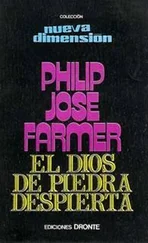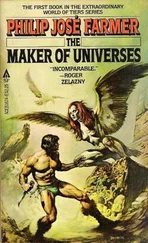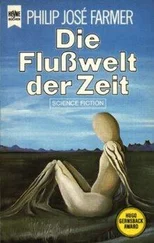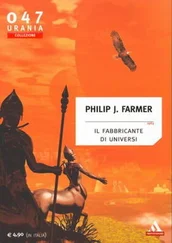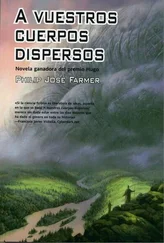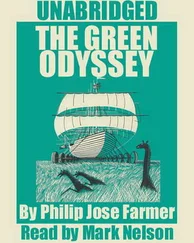Philip José Farmer
 VENUS
VENUS 
ON THE HALF-SHELL
Dedicated to the beasts and the stars.
They don’t worry about free will and immortality.
FOREWORD
WHY AND HOW I BECAME KILGORE TROUT
BY PHILIP JOSÉ FARMER
Not until I reread Venus on the Half-Shell in preparation for this foreword, and read the reviews and letters resulting from it, did I remember how much fun I had had with it.
When I sat down to the typewriter to begin it, I was Kilgore Trout, not Philip José Farmer. The ideas, characters, plot, and situations rushed in, crowding at my brain’s front door. When they surged in, they swirled around, hand-in-hand, like super barn dancers or well-orchestrated members of the lobster quadrille. What a blast it was!
Six weeks later, the novel was done, but, all that while, the music was from Kant, Schopenhauer, and Voltaire. The caller was Epistemology, who looked a lot like Lewis Carroll. My wife knew I was having a good time because she could hear my laughter coming up the basement stairs to the kitchen.
I had been having a moderate writer’s block with the thencurrently scheduled novel. I was making slow and often halting progress. But, once I put that novel aside for the time being and adopted the persona of Kilgore Trout, sad-sack science fiction author, I wrote as if possessed by a degenerate angel. Which is what poor old Trout was, in fact.
The beginning of this project was in the early 1970s when I vastly admired and was wildly enthusiastic about the works of Kurt Vonnegut, Jr. I was especially intrigued by Kilgore Trout, who had appeared in Vonnegut’s God Bless You, Mr. Rosewater and Slaughterhouse-Five. Trout was to appear in Breakfast of Champions , but that had not been published then.
While rereading Rosewater (in 1972, I believe) for the fifth time, I came across the part where Fred Rosewater picks up one of Trout’s books in the pornography section of a bookstore. It’s a paperback (none of Trout’s works ever made hardcovers) titled Venus on the Half-Shell. On the back cover is a photograph of the author, an old bearded man looking “like a frightened, aging Jesus”, and below it is an abridged version of “a red-hot scene” in the book.
The section regarding Venus differs from others, which describe the plots of Trout’s stories. Thus, Vonnegut, via Trout, makes his satirical or ironic points about our Terrestrial society and the nature of the Universe. Venus has no descriptions of the plot, and the hero is known only as the Space Wanderer. Aside from the abridged text on the back cover, there is no inkling of what the book is about.
At that moment, rereading this part, a pitchfork rose from my subconscious and goosed my neural ganglia. In short, I was inspired. Lights went on; bells clanged.
“Hey!” I thought. “Vonnegut’s readers think that Trout is only a fictional character! What if one of his books actually appeared on the stands? Wouldn’t that blow the minds of Vonnegut’s readers?”
Not to mention mine.
And, I thought, who more fitted to write Venus than I, a sad-sack science fiction writer whose early career paralleled Trout’s? I’d been ripped off by publishers, had to work at menial jobs to support myself and family while writing, had suffered from the misunderstanding of my works, and had had to endure the scorn of those who considered science fiction to be a trashy genre without any literary merit. The main difference between Trout and me was that I had made a little money then, and none of my stories had been confined to sleazy pornographic magazines where they appeared, as in Trout’s case, as fillers to accompany the photographs of naked or half-clad women. Although it was true then that the general public and the epicenous academics thought of science fiction as only a cut above pornography.
My heart fired up like a nova, I wrote to David Harris, science fiction editor of Dell (Vonnegut’s publisher), proposing to write Venus as if by Kilgore Trout. He replied that he thought the idea was great, and he gave me Vonnegut’s address so that I could write him to ask for permission to carry out the project. I did not hesitate. After all, Venus would be my tribute to the esteemed Vonnegut. I sent him a letter outlining my proposal. Many months passed. No reply. I sent another letter, but many more months passed before I decided that I’d have to phone Vonnegut. David Harris gave me Vonnegut’s number.
I had to nerve myself up to phone Vonnegut. He was a very big author, and I was a member of a group, science fiction writers, for whom he had expressed a certain amount of disdain. But, when I did call him, he was very pleasant and not at all patronizing. He said that he did remember my letters, though he did not explain why he had not replied. I re-outlined my ideas, and, in arguing against his resistance to them, said that I strongly identified with Trout. He replied that he, too, identified with him. And he was afraid that people would think that the book was a hoax.
That flabbergasted me. Of course, it was a hoax, and people would know it. But I rallied, and I argued some more. Finally, he relented and gave me permission to write Venus as Trout. I offered to split the royalties with him, but he magnanimously refused to accept them. However, he did stress that no reference to his name or his works should appear in or on Venus .
I thanked him, and, elated, started to write. I was Kilgore Trout, in a sense, and I was writing the sort of book that I imagined Trout would write. But I tried to give the prose, characters, plot, and philosophy of Venus a Vonnegutian flavor. After all, Vonnegut had admitted that he was also, in a sense, Trout. I was only restricted in writing Venus by having to make the protagonist the Space Wanderer and by including my expansion of the abridged “red-hot scene” as described in Rosewater. I did not entirely emulate Vonnegut in the use of short words and a sort of See-Dick-See-Jane-See-Spot prose. But I did try to keep the text from becoming anything resembling William Faulkner’s. Vonnegut wrote a very simple prose because he had a low opinion of the attention-span and general literary and lexical knowledge of the 1970s’ college students, who formed a large percentage of his readers.
It’s worth noting that such science fiction writers as Isaac Asimov and Frank Herbert did not avoid complicated ideas and plots and long sentences and words, and they did very well among the college students and general reading public.
The protagonist of Venus was named Simon Wagstaff. Simon because he was a sort of Simple Simon of the nursery rhyme. And Wagstaff b ecause he certainly “wagged” (and waved) his sexual “staff” around during various sexual encounters. I also, unlike Vonnegut, put in a lot of references to literature and fictional authors. It would not matter that the average reader would not understand these, and it would amuse the academics. Or so I thought. I was too obscure for even the supposedly overeducated academics.
How many knew that Silas T. Comberbacke, the baseballfan spaceman (sort of an Ancient Mariner) in Venus was the pseudonym of Samuel T. Coleridge, the great British poet, during his brief stay in the English army? Or that Bruga, Trout’s favorite poet, was taken (with permission) from a novel by Ben Hecht, Count Bruga? And that Bruga, the wild Jewish Bukowski-like Chicago poet, was based on Hecht’s friend, Maxwell E. Bodenheim, the Greenwich Village poet and wino of the 1930s? Or that there were many similar references to other fictional writers? Who cared except me?
Читать дальше
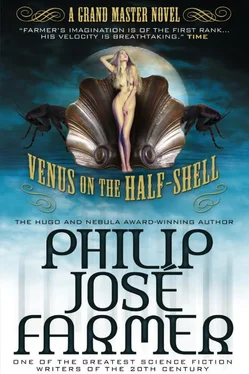
 VENUS
VENUS 
